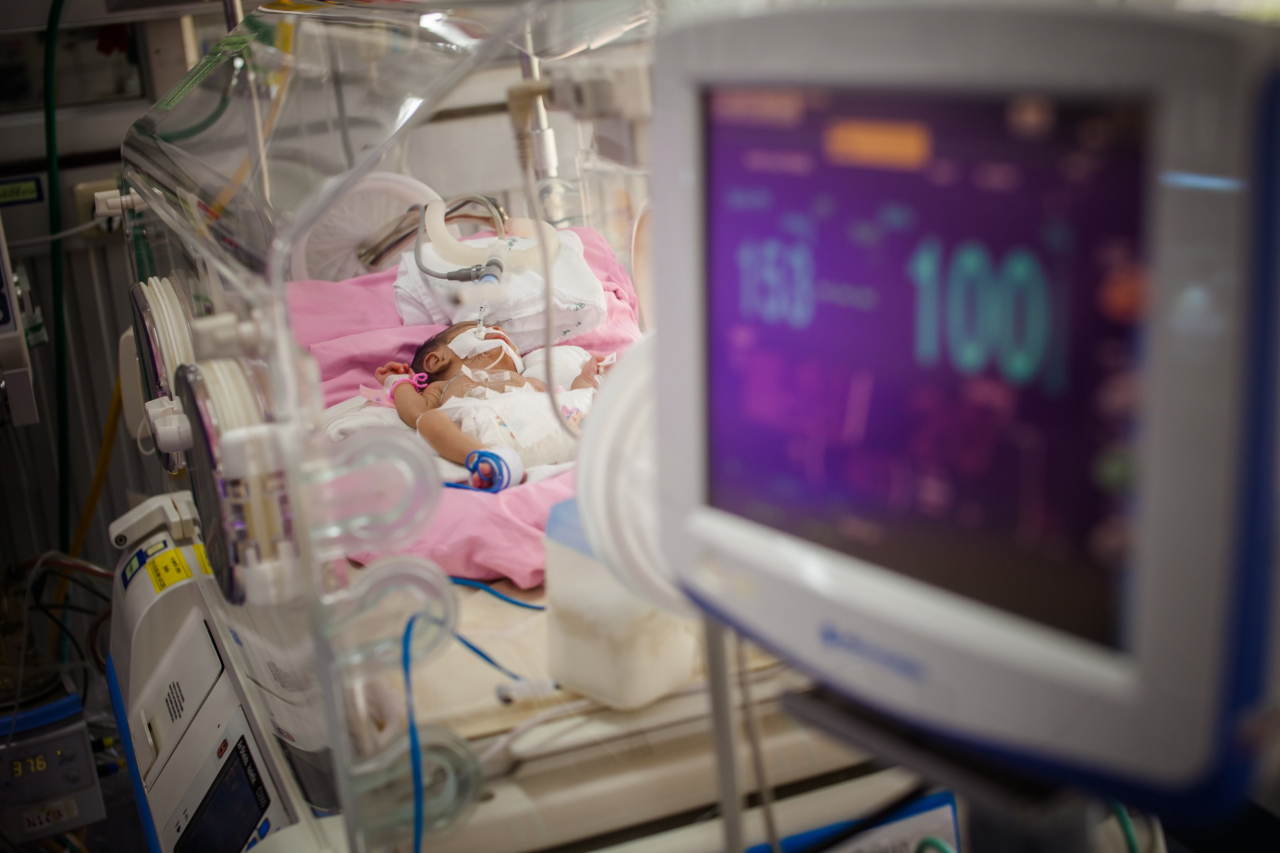 |
A newborn baby lies in an incubator. (123rf) |
The number of hospitals offering medical services for infants and children at night or on weekends are shrinking amid a chronic shortage of pediatricians in the country, data shows.
From this week, Gangnam Severance Hospital has decided to suspend the nighttime emergency room for pediatric treatment. Emergency room treatment for pediatric patients under the age of 16 is available only from 9 a.m. to 10 p.m.
Ewha Womans University Mokdong Hospital suspended its emergency treatment for pediatric patients starting from Sept. 1. This means those who come to the hospital at night or during the weekend will be transferred to other healthcare providers.
According to the Korean Pediatric Society, of 80 teaching hospitals across the country, 29 institutions provide 24-hour service for pediatric patients with a pediatric resident and a pediatrician as of last month. They accounted for 36 percent of the total.
The shrinking pediatric care comes as South Korea sees births plunge to a new record low in the first half of this year – about 128,100 babies were born in the country from January through June, down 6 percent from a year ago.
The country’s fertility rate, the average number of babies a woman is expected to give birth to, stood at 0.81 in 2021, which was the world’s lowest.
Against this backdrop, pediatric clinical care is among the least preferred medical specialties.
Applications to pediatric residency programs have sharply dropped in recent years. In 2022, only 27.5 percent of pediatric resident job positions opened in the country received any applicant, compared to 38 percent in 2021, 74 percent in 2020 and 80 percent in 2019.
The dearth of new recruits has led to existing pediatricians to do long hours, including the night shift.
Pediatricians at some 62 percent of the country’s teaching hospitals worked extended hours for the night shift as of January, the Korean Pediatric Society said.
“As this situation prolongs, it is difficult to maintain a normal medical treatment system due to the negative impact on weekday patient care which resulted in medical institutions’ decision to reduce pediatric care services,” it said in a press release.
Medical experts including the group have called for the government to support hospitals to hire more medical staff including nurses and administrative personnel, which would help relieve nonessential work from pediatric residents.
More fundamentally, the current medical fee system should be readdressed to make pediatric care more attractive, experts say. A raise in fees is essential and the central and local governments should allocate budgets to pay doctors on a fee-for-service basis along with incentives, they said.
Of the country’s total population, those who are under the age of 16 – potential patients for pediatricians – take up 17 percent.







![[Today’s K-pop] Blackpink’s Jennie, Lisa invited to Coachella as solo acts](http://res.heraldm.com/phpwas/restmb_idxmake.php?idx=644&simg=/content/image/2024/11/21/20241121050099_0.jpg)